#you can observe the warning signs for a hurricane without loving the lack of them
Explore tagged Tumblr posts
Text
the thing that tends to frustrate me about the debates people get into re: rainbow capitalism on this site is that i think two things are equally true:
1: corporations are not our friends, they do not plaster rainbows on things because they are reliable allies and ought to be trusted and defended for doing so, there is no need to be grateful to them
2: how much money companies think they can wring out of us via plastering those rainbows and how much they think they can get away with that wringing without incurring social backlash from those who hate us is a good bellwether for where social acceptance is re: our rights, and a pulling back on doing so often indicates Concerning Trends
the first fact doesn’t make the second not true, and the second doesn’t negate the first, it feels like we should be able to negotiate this nuance without ignoring either truth
#you can observe the warning signs for a hurricane without loving the lack of them#and you can observe the hurricane is currently passing you by without thanking it for doing so
356 notes
·
View notes
Link
I heard a family member make remarks on the ‘victims’ of Hurricane Florence, who knew well in advance the possible horrors which came crawling their way. But were those who decided to stay victims given the warnings? They also espoused, essentially, that rescue teams shouldn’t put their lives at risk for those who remained in harm’s way.
This brought me back to a conversation with a man who has been big on situational awareness in terms of avoiding assailants who aim to pierce your heart and rob you while you lie in a pool of your own blood. He asked this question about what one does when in a dark alley and you see a suspicious character coming your way? My response was something to the extent of whether or not I even had to be in the dark alley? That was his point.
https://www.youtube.com/watch?v=bHq4dbQBa14
Now, I’m not remotely suggesting rescue teams avoid doing their job, but it did get me back to situational awareness and understanding the justice brought about when you are foolish enough to venture into a dark alley on the wrong side of town, or remaining in Florida when you damn well knew the potential risk involved.
That got me thinking about the recent political violence and acts of domestic terrorism caused by Black Lives Matter and Anti-Fascists. So, in regards to our contemporary state of the political and cultural arena, and what surely awaits us in the next US presidential election, here are some simple, basic tips about situational awareness and being prepared in case civil unrest breaks out.
1. Understand The Baseline Of Your Environment
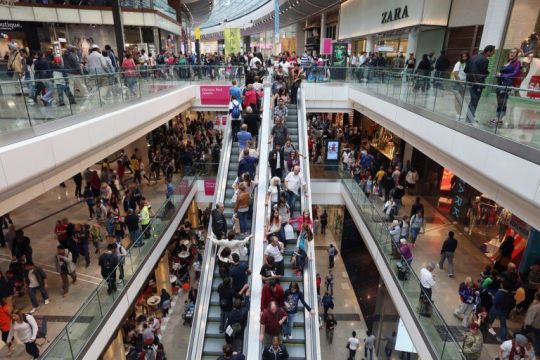
Political rallies across the US demonstrate the capacity of violence and the willingness to assault in ruthless manners. Both men and women of more right-wing views have been assaulted, been threatened to be raped, have their families killed, get doxxed, have dead animals thrown at their living quarters, had their finances threatened, etc. It’s a goddamn nightmare on the more North Side of America than the South Side, where not everyone has a bamboo stick up their ass.
There are many great articles written on situational awareness. And that’s key: situation. The environment, in a general sense, has a baseline. It’s the basic overall feel and operation of that set area.
For example, you go to the mall. What’d you expect to see, generally speaking? People walking and talking, laughing and usually carrying a bag or two. It would, in this context, be out of the ordinary if an individual, dressed in all black, is quickly walking through a crowd while he has his hoodie on and hands in his pockets. It’s odd behavior. Same for someone moving nervously carrying a bag that does not appear to be bought at a store or, to add to that, he doesn’t have workman apparel. It’s out of the ordinary.
If I’m at a bank and someone walks in, sits in the corner for an unreasonable amount of time without engaging in any transaction and appears to not work there, I’m alert. Are his eyes moving around scanning for cameras, are his lips moving to suggest he’s counting something, is he in apparel which could perhaps more easily conceal a gun?
Same if I’m out sitting while enjoying coffee and an all-black car pulls in and just sits. Whether the engine is on are not does slightly change the degree of the potential threat of the situation. If it’s on, is it a quick getaway for a potential crime? And is it at night where there are fewer people and witnesses?
These are all pretty basic to practice, in my view. So it doesn’t help when everyone’s head is glued to their smartphones. Especially with women. They appear to be much less aware than men who themselves very much have this issue with their smartphones.
2. The Gray Man At Political Rallies

The concept of the Gray Man is simple: blend in. Do not create stimuli around you. Gray is often considered a very bland color. It’s boring, lifeless, moot. This isn’t to suggest wearing gray makes you undetectable, but the concept works well with this color.
Blend in so well to your environment that you essentially appear bland. But if you’re at a political rally, then you know anyone is a potential threat. Wearing a Trump hat or an American flag raises suspicion, creates stimuli from your political adversary, and now you are made. If you’re European-American, wearing a hat over your shaved head is a good idea in terms of lessening your presence because there is still widespread delusion about the reincarnation of literal Nazis.
People involved with BLM, AntiFa and other leftist gangs are already going to make assumptions about your character and will dehumanize you and engage violently. Perhaps lessening that delusion, if even possible, could potentially add to your safety and security, in some respects.
It’s not that one desires to give up their chosen headwear and so on, but weighing the pros and cons should be obvious if you wish to avoid conflict. Which, again, these days is hard to do.
3. Consider Your Neighbors And Conversation

Depending upon your living situation, if you’re in California, talking openly with your neighbors about politics in relations to conservatism, in a positive light, creates quite a stir of stimuli. And, given the next US elections are coming up, you’ve made an impression in their mind. If they believe you are a literal Nazi, you’ve coined a political adversary. If you’re in the deeper South surrounded by red-necks and American-loving Christians, chances are, from my observations, you’ll be less likely to be attacked for your political (or religious) views.
I personally despise having to sometimes lower my voice or take a quick glance around because I’m about to say something that might cause stimuli to a potential assailant. But, in these contemporary times, it’s up to you to decide what’s worth it and what’s not.
Conclusion
These are merely a few things of quality in regards to your safety and security. I’ve been quite observant. It’s not always intentional, but I’ve seen things and made assumptions (or had a strong thought about it) and turned out to be spot on.
Identity your adversary. Weigh in how much of a threat they are to you. Pay attention to who they know or talk to, then extend that person’s conversation partners and then extend it again. Leftist are ruthless, dangerous, hateful devils. And remember, if you ever see anyone wearing the hammer and sickel, then be even more alert.
Read Next: Being Situationally Aware Is A Matter Of Life Or Death
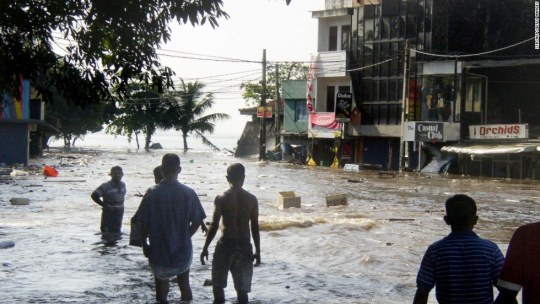
It is 7:30am on the day after Christmas in 2004. The sun is already up in the blue sky of the Andaman sea, and some rare tourists are walking on the main beach of Phi Phi island in Thailand. Most of the tourists are still sleeping, dealing with the usual hangover that comes with the traditional Christmas party.
The locals are busy preparing the long tail boats they use to cruise around the nearby islands. Some Westerners like me, who live here, fill and carry the diving tanks the scuba divers will use to explore the underwater reefs today.
In less than an hour, this idyllic landscape will turn into a dramatic nightmare and many of those people will die, crushed and drowned by the powerful wave of a tsunami coming from the Indian Ocean.
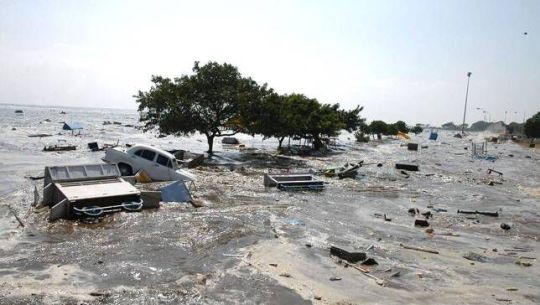
Was there a way to prevent that? Not more than preventing a hurricane in Florida or an earthquake in California. Scientists can predict it, multi-million dollar sensors can detect it, information networks can announce it through various media, but there is no way to prevent it from happening. But we can be more prepared than when I experienced this tsunami in Thailand. Governments and local administrations can invest in infrastructures to mitigate the potential risks and better inform the general public.
And individuals can be better prepared to deal with the consequences of natural events. The people who tragically died on this island were not different from any other people on this planet. As a matter of fact, a vast majority of them were young and relatively fit. They didn’t survive for only a handful of reasons, mainly:
lack of situational awareness
lack of appropriate mindset
lack of physical skills
The situational awareness and appropriate mindset are mainly due to the fact that, when we are on vacation on a tropical island, the last thing we want to think about is the remote possibility of a tragic event of any kind. If the place is nice and sunny, if the locals are friendly and smiling, we quickly feel safe and let our guard down. No pickpockets, no fire, no mugging, no earthquake, no car crash, and therefore no need to pay attention to any precursor sign, no need to keep our valuables and documents with us at all times, no need to have a look at evacuation routes, fire exits, etc. In other words we quickly become complacent when everything looks like paradise.
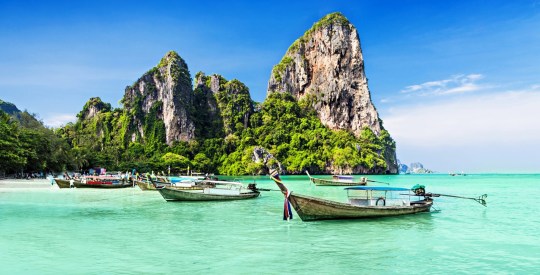
But this lack of situational awareness and appropriate mindset was only one side of the coin for the many fatalities that occurred that day in Thailand. One of the main culprits was the lack of physical skills. Many people didn’t survive simply because they didn’t have the physical abilities to deal with what happened to them and around them.
Some were not comfortable in the water and couldn’t swim across the strong current that the wave and the obstacles created. The event only lasted a few minutes but the water raised quickly and submerged the lowest part of the island.
Some were not able to hold their breath for a few seconds. When the wave hit the hotels and guesthouses near the beach, most of the rooms were submerged very rapidly, but not for very long. Surprise and panic killed a lot of people in their rooms.
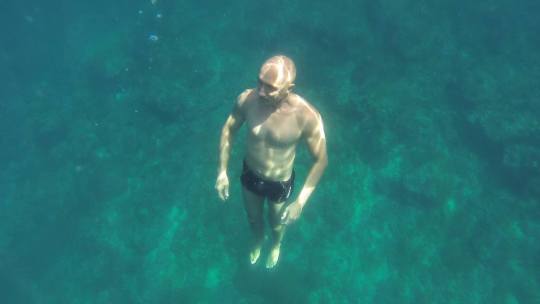
Some were not able to hold on to fixed objects for more than a few seconds. The current was strong and being able to hold on something, or even better to climb onto something, was a good way to increase the chance of surviving.
Some were not able to run away and climb a hill or a stairway. For those who were on the beach and saw the wave coming, the proper action was to sprint and find high ground. Reaching the highest floor of a hotel or one of the nearby hills was a good way to avoid the full force of the tsunami.
Some were not able to push away heavy objects. Entrapment was one of the major risks in this event. Many people drowned because they lacked the necessary strength to move away the objects that the current pushed onto them.
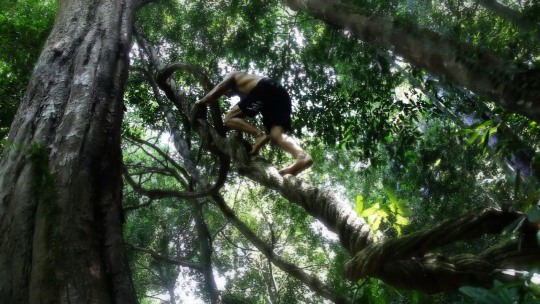
The Western world tends to rely heavily on tools to make our life easier and tools to make it safer. Instead of dealing with the weather, we use tools to make it more bearable (A/C, heater, umbrella, raincoat, sunscreen, etc). Instead of moving in this environment, we rely on tools (a car or an ATV instead of walking and running, a canoe or a boat instead of swimming). We easily blame the lack of protection that can get us injured (“I cannot walk/run without shoes”, “I cannot float without a flotation device”, “I will fall and break my skull if I don’t wear a helmet”, etc).
Tools are fine and make our life more enjoyable most of the time, but what if? What happens when we don’t have them? That’s where skills and physical abilities make plenty of sense. Every one of us, regardless of age, gender and race should be able to do at least the following things:
sprint for at least 100 yards/meters in order to get out of danger (collapsing building, wild fire)
climb over a wall or fence at least shoulder high (to escape an angry pitbull or a group of thugs)
carry for at least 10 yards/meters someone of 3/4 of your size and bodyweight (to save someone from an immediate danger)
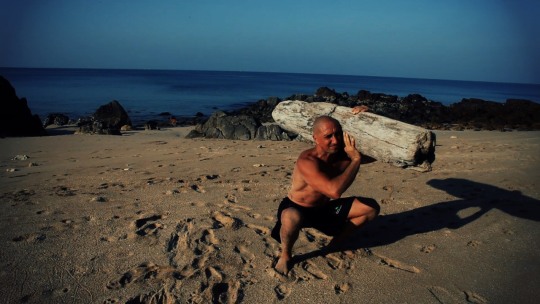
swim at least 100 yards/meters without stopping and float at least 10 minutes with no aid or support (to get out of a dangerous zone and wait for a rescue vessel)
walk 5 miles in an hour (to reach a gas station when you run out of gas and you cannot call for help)
perform some basic self-defense techniques (striking, grappling) to react appropriately in a mugging/rapping/life-threatening situation
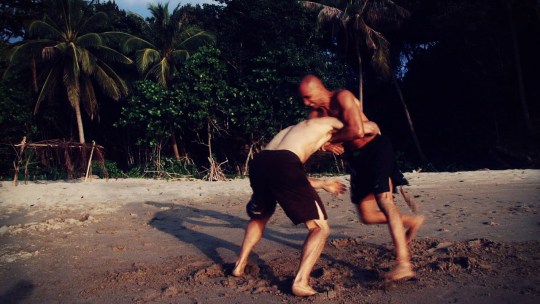
hold your breath for at least one minute while walking/moving at a slow pace (to escape the toxic fumes of a building on fire)
crawl for at least 30 yards/meters to seek cover (active shooter situation) or rescue someone (a child hidden under a car, or someone trapped under or inside something)
If you think that any of those abilities is way beyond your limits, it’s maybe time to reconsider your priorities in life. Being self-sufficient and prepared doesn’t mean relying on tools—it’s knowing that you can deal with dramatic circumstances to the best of your abilities. Tools come in handy when you have physical limitations (age, injuries, illness) but they shouldn’t be the first line of defense.
Having some regulations that require a floatation device in every hotel room in Thailand will not save any life if the next tsunami in the region happens in South Korea. Use your body and your brain. They are the original tools, and you have them with you all the time!
Read More: How To Improve Your Situational Awareness From One Minute Of Effort Per Day
1 note
·
View note
Text
the heart, the mind, and the soul
Warnings: Anxiety, depression, uhhh, deep shit I guess
Word count: 1,500+
Author: Zoe
Ship: JAMILTON
[Can also be found on AO3 don’t fret]
"Who will I be in a hundred years from now? In two-hundred? Just a number? A name in a footnote? I intend to have biographies."
Alex stared at the pen in his hand as he spoke. "My eloquence often doesn't translate to my normal speech, due to the fact my vocabulary has been shunned upon in youth, but upon rare moments I fear I can speak what I write. It's equally as dangerous as it is wonderful. These thoughts are not preserved in ink or memory, it is merely known to myself and those who dare to listen to my late night ramblings."
Rubbing a hand across his face, he sighed. "What I have to say will always land me at the top of my class, it is no absurdity to think so, but the question is, can I voice my thoughts to a larger platform than that of a mere college? College is of scholars and fruitful men, brilliant, but known to overcomplicate the implications of nearly everything. Is it so impossible to believe they over think a legacy as mere ego? I am aware of my ego, as everyone should be aware of their own, but legacy rarely lies in the reach of egos. My drive towards a legacy is riddled with a need to be someone, to not be a number, a nameless face in a painting or picture. I cannot live bearing the fact that I will surmount to nothing, if I cannot be someone, than who am I?"
"You are the heart, Alexander," Thomas sat next to Alex on a stool next to the desk. "You will always be the heart, the driving force of us. Not us as just you and I, but our peers, our school, and eventually I am sure it will insure your name in this nation as well."
"If I am the heart, who drives the soul? The mind?" Alexander looked up at Thomas with a perplexing look. A pause. "You are the soul."
"I am the soul as much as I am the mind. And you are as much the mind as you are the soul, love. A legacy may be what you strive for, but remember, the heart must to focus now to grow stronger, and a strong heart..."
"Means a strong mind. And a strong mind is as strong with a pen as that of a sword...Swords aren't cherished nearly as much as the quill?"
"Exactly," Thomas leaned down from his seat to kiss Alex on the forehead. "Come to bed, Alexander, let the words wash over you in sleep so you can have the power to construct your proverbial cathedrals past dawn."
He slid off the stool, holding out his hand for Alex, who gave him a soft smile and rose to meet him.
("-please don't leavemewhatdidIdodon'tleaveme-"
"Breathe, Alex, just breathe with me. Please.")
There was an arm draped over his hip. Legs tangled with his. A warm body pressed against his back, shielding from the nefarious cold from outside the covers. It was nice, it was stagnant; it was a pause that Alex so dearly craved in his life.
"Alexander?" Thomas whispered, arm tightening slightly around Alex's waist.
"Thomas?" His voice always took a scratchy quality in the mornings. Thomas' never did that. Nor did John's. It was like a fountain pen that had run out of ink on parchment. Perhaps that's why they call it parchment, it's parched since it lacks anywaterhowever-
"Stay home with me today," Another hand snaked its way up to touch Alex's hair. Thomas had hands that showed his physical labor intensive youth, with calluses and muscles in places you wouldn't suspect. Strong hands, short nails, cold hands, cold hands warmheartthelinewasright-
"That's a good idea."
Today was a pause. A coma.
("I should have listened to you, pa. I understand, I understand, to church to church to church..."
"It's who you are; don't let anyone else define you. What good is a dictionary missing context?")
"I feel muted today," Thomas said suddenly as the two sat in bed, not moving, not talking, just looking- observing. He only wore pajama bottoms last night, leaving his chest bare and to the mercy of the cool house.
"It's in the air," Alex responded, reaching out to touch one of Thomas' curls. "The tone of today, perhaps, God had intended to leave for rest."
"Perhaps it's nothing at all." Thomas was an atheist. Alex wore a necklace with a cross.
A pause.
"It's the stars," was the quiet remedy.
"Or the moon." A hint of a smile.
"What mercies do we have to Scorpio?"
"What mercies do we have to a waxing crescent?"
It was cold.
("It's history. I'm history. But I will never be history my eyes are clouded my time is outi'mrunningoutoftime-"
"History can wait.")
Pearls. His mother had a single pearl, a gift from her own mother many years ago. Thomas always liked pearls. His skin always looked nice with the soft cream ones. Maybe a gift for the upcoming holiday season?
Alex tugged on a sweatshirt before tossing one over at his...his Thomas. Whatever they were, they were each other's. He walked back over to get into bed, passing the window, he paused, turning back.
"Not the air, nor God, nor stars or moon. A storm, grey, quiet, thundering." Alex opened the curtain to see the downtown city splayed out before them. "What a heroic feat, to mimic what a celestial can do with only water, wind, and a diabolical twist of air pressure."
He turned back to Thomas, who held out his arms with soft eyes.
"Am I shaking?" Alexander held up his hand to see.
"Like a leaf, come on."
("Liberty is a concept that should be applied to everyone. People say it already is. Do they not see the rights of others being ripped away where they stand?"
"You can only make a hero out of yourself, don't make a villain out of another.")
"Are you still cold?" Thomas shook his head subtly. "That's good. Am I warm?" A slight nod.
They were sitting up still, Thomas' back against the headboard, and Alex sitting in his lap. Alex always leaned back in just a way that would manage to align their hearts. Myth said that once two people spent enough time together, their hearts would beat at the same rate. Perhaps it would be something they put to the test.
A wave of shivers wracked his body, making the man in his arms do a soft thing akin to a chuckle, but far too light, far too weary.
Thomas buried his face in the crook of Alex's neck, placing a soft kiss. The chain of the necklace was a very small link, a gift from Thomas himself many months ago. It was a gift to mean something. The thought escapes him now, but it had meaning, somewhere. Somehow.
"Thomas?" Alex asked, said, stated, mentioned, inquired, questioned, demanded.
He hummed.
"I'm in love with you."
He hummed again.
(No words. Silence.
"Say something, anything, you're scaring me.")
He was crying. Tears running down his face. His own personal storm compared to the one that shook the house. This was no hurricane, no tornado, just a storm. A soft thing, even, not the worse they've seen in New York by a long shot.
Alex choked out a sob.
Thomas finally moved his head. One of his hands (strong, calloused) led Alex to slide down just enough to have his heart on the taller man's chest. A heartbeat. A sign of live. A sign of love.
Tha-thump.
Tha-thump.
"You love me."
Tha-thump.
Tha-thump.
("I'm not lost, I'm just yet to be found."
"I found you, let me lead you to a path.")
Seconds. Minutes. Hours.
Something passed. Anything passed. Nothing passed. Everything passed.
"I'm in love with you, Alexander." His voice was rough, low, honest. It may be the quietest day, but it will forever be the warmest hour.
Seconds. Minutes. Hours.
"Are you cold?"
Thomas shook his head.
("I'm lost."
"Let me show you your path.")
"My soul," Alex said softly, just as they were about to drift off again. "What am I without a soul? What would you be without a heart? Where are we with two minds?"
"Cracked," a reply, quieter than the questions. "But strong."
What a brilliant repertoire to exhibit.
The next morning was different. It always is.
"Alex, did you see my green tie?" Thomas yelled from the bedroom.
"Yeah, I'm wearing it, I think," Alex shouted back from the office. "Can you grab mine?" "The blue one?"
"Sure," Alex huffed, undoing the crisp knot he took way too much pride in. "Why, of all your ties, did I grab the one with orange poka-dots?"
"Because I have style," Thomas smirked as he walked in the room. "Unlike your made-of-plaid-closet."
"I've seen your lumberjack wear, Tommy, darling, don't think you're off so easily with that callout."
"Lumberjack wear? 'Lex, love, at least it shows I did something other than sit at a desk all day."
"Uh-huh." Alex rolled his eyes at his Thomas. "Just hand over the tie, asshole."
25 notes
·
View notes
Text
7 Things About Life in Puerto Rico with No Electricity
A Puerto Rican solar engineer reflects on the struggles of daily life after Hurricane Maria
Photo: Praytell Films
Electrical engineer Gabriel Arturo Rivera holds a solar panel that the author brought to Puerto Rico after Hurricane Maria. He’s showing residents of a senior assisted living facility how solar energy can charge their medical devices until grid electricity is restored.
More than two months after Hurricane Maria devastated Puerto Rico, large sections of the island have yet to have electricity restored. The state of the power grid is still so unstable that even those areas that have been re-electrified can’t really count on around-the-clock power.
As many observers have noted, this is an untenable situation. I’ve worked for much of my adult life as a solar engineer, installing solar microgrids in remote parts of the world that previously had no access to electricity. But Puerto Rico is different. All over the island, people have relied for decades on steady, abundant electricity and the modern conveniences that come with it. And so to suddenly not have electricity presents all kinds of hardships—some obvious and some less so.
For me personally, this ongoing hardship is especially wrenching. I grew up in Puerto Rico, in the rainforest of El Yunque and on the beaches of Luquillo, and much of my family is still there. Immediately after the storm, I couldn’t reach any of them because of course they had neither power nor phone service. When officials announced that power wouldn’t be restored for months, I booked the earliest flight to San Juan that I could find. I spent a week in Puerto Rico in early October, checking on relatives and friends and helping where I could.
My time there veered from the absurd to the devastating. Several times a day, I’d manage to walk into a room, flick on the light switch, and then laugh at myself for having forgotten—again. There were emergencies happening seemingly everywhere I turned—people needing medical help they couldn’t get, others unable to work or go to school, businesses unable to stay open. Since my return to New York, I’ve been working hard to get the word out about conditions on the ground there. Here are seven facts about living in Puerto Rico right now.
1. Stoplights don’t work
Driving around after the storm was chaotic. Every intersection became a test of wills—the bold and reckless forged ahead, heedless of cross traffic, the meek waited for a break in traffic to make their move. Although a few of the busier intersections had traffic cops, the vast majority didn’t. And the cops who had to stand out in the sun and the heat all day serving as stoplight replacements clearly were having a rough time. Did I mention there was a heatwave right after the storm?
2. ATMs and credit cards don’t work
Puerto Rico has a modern banking system, but after the storm hit, many ATMs didn’t work at all for lack of power. Those that were still operating quickly ran out of money. Without money, consumers couldn’t buy anything, and businesses couldn’t sell anything. And of course credit cards didn’t work because there was no way to process transactions. The economy basically ground to a halt.
Businesses that did manage to stay open relied on generators and cash. Even then, it was a struggle. One day, I and some friends were having lunch at my favorite restaurant, Toro Salao, when the manager informed us that we were eating the last of the tostones, a delicious alternative to French fries made from plantains. The storm had knocked down nearly all of the island’s plantain trees.
3. Cellphones don’t work
Before the hurricane, the island enjoyed decent cellphone coverage pretty much everywhere. The storm knocked out 95 percent of Puerto Rico’s cell service [PDF], according to the U.S. Federal Communications Commission. Throughout my stay, phone service remained down across most of the island, with only limited service within San Juan and a few other spots. Restoring phone service will mean not just repairing cell towers that were damaged but also electrifying them.
For most people I met, lack of communication was the single biggest source of stress. Going days on end without knowing whether family members were okay is something that no one should have to go through.
I did manage to place a few calls either with a satellite phone or by calling when I happened to drive through an area that had reception. It’s hard to describe that intense feeling of relief when you do finally hear from a loved one. I went through it myself when I got word that my parents and brothers were OK. I experienced an entirely different set of emotions when I learned that my favorite uncle had passed away right after the storm. By the time I found out, he had already been dead a week.
4. Water doesn’t work
It takes electricity to run the pumps that move water through the system, and it takes electricity to filter and treat the water so that it’s safe to drink. I visited some towns that had diesel-powered emergency generators to get the water flowing again. But much of the island’s infrastructure was so badly damaged that even now, many places still lack clean running water. The water crisis has in turn prompted medical experts to warn of a looming health crisis in Puerto Rico.
5. Refrigeration doesn’t work
No electricity means your fridge soon becomes just a big box with rotting food inside. As temperatures climb, food quickly goes bad, and so people are forced to shop for food every day. During my visit, supermarkets that were still open had long lines of people standing in the sun, waiting to shop for a very limited selection of goods. Ice is therefore in high demand, to keep food and drinks cool a little longer and maybe postpone another punishing trip to the store.
6. It’s dark
No street lights or house lights or lights of any kind means the nights are really dark. I’ve camped in the desert before, but this was a different kind of dark. Trying to drive at night was surprisingly difficult—street signs were hard to read, buildings were indistinguishable from one another, and the usual landmarks weren’t at all obvious.
Photo: Rumi Humphrey
People Power: Portable solar chargers allow some residents of Vieques, Puerto Rico—including the mayor, Víctor Emeric [right]—to charge their cellphones and small LED lights. The power grid is still down on Vieques.
7. Solar power works!
Fortunately, my experience designing and installing solar microgrids for rural villages in Haiti, India, and sub-Saharan Africa, and urban rooftops in New York City came in handy. Before my trip, I’d collected money via a crowd-sourcing fundraiser, and I arrived in Puerto Rico with a suitcase full of portable solar panels designed by Voltaic Systems of Brooklyn, N.Y., suitable for charging cell phones and other small devices. I also brought LED lights, water filters by LifeStraw, and CampStoves by Biolite. As I traveled around the island, I gave the equipment to people I met. The recipients were invariably overwhelmed and grateful, and I felt lucky to be able to offer them the means to connect with their loved ones, drink clean water, and prepare a meal.
There is still so much work to do. I’m back home in Brooklyn but I can’t rest. Having worked in the energy industry for a long time, I know that I can make a difference, helping to build a cleaner, more resilient power system for Puerto Rico. If you have a technical background, please consider using your expertise to help others who really need it.
About the Author
John Humphrey was born and raised in Puerto Rico. He now lives in Brooklyn, N.Y., and has been working with solar equipment since 2001. He’s currently developing solar-powered community centers to help re-electrify and rebuild communities in the Caribbean that were devastated by the recent hurricanes. You can read about his projects here, and you can donate to the solar Gazebo Community centers project here. His recent trip to Puerto Rico was documented in “After Maria: A Puerto Rico Story,” produced by Praytell Films.
7 Things About Life in Puerto Rico with No Electricity syndicated from http://ift.tt/2Bq2FuP
0 notes
Text
7 Things About Life in Puerto Rico with No Electricity
A Puerto Rican solar engineer reflects on the struggles of daily life after Hurricane Maria
Photo: Praytell Films
Electrical engineer Gabriel Arturo Rivera holds a solar panel that the author brought to Puerto Rico after Hurricane Maria. He’s showing residents of a senior assisted living facility how solar energy can charge their medical devices until grid electricity is restored.
More than two months after Hurricane Maria devastated Puerto Rico, large sections of the island have yet to have electricity restored. The state of the power grid is still so unstable that even those areas that have been re-electrified can’t really count on around-the-clock power.
As many observers have noted, this is an untenable situation. I’ve worked for much of my adult life as a solar engineer, installing solar microgrids in remote parts of the world that previously had no access to electricity. But Puerto Rico is different. All over the island, people have relied for decades on steady, abundant electricity and the modern conveniences that come with it. And so to suddenly not have electricity presents all kinds of hardships—some obvious and some less so.
For me personally, this ongoing hardship is especially wrenching. I grew up in Puerto Rico, in the rainforest of El Yunque and on the beaches of Luquillo, and much of my family is still there. Immediately after the storm, I couldn’t reach any of them because of course they had neither power nor phone service. When officials announced that power wouldn’t be restored for months, I booked the earliest flight to San Juan that I could find. I spent a week in Puerto Rico in early October, checking on relatives and friends and helping where I could.
My time there veered from the absurd to the devastating. Several times a day, I’d manage to walk into a room, flick on the light switch, and then laugh at myself for having forgotten—again. There were emergencies happening seemingly everywhere I turned—people needing medical help they couldn’t get, others unable to work or go to school, businesses unable to stay open. Since my return to New York, I’ve been working hard to get the word out about conditions on the ground there. Here are seven facts about living in Puerto Rico right now.
1. Stoplights don’t work
Driving around after the storm was chaotic. Every intersection became a test of wills—the bold and reckless forged ahead, heedless of cross traffic, the meek waited for a break in traffic to make their move. Although a few of the busier intersections had traffic cops, the vast majority didn’t. And the cops who had to stand out in the sun and the heat all day serving as stoplight replacements clearly were having a rough time. Did I mention there was a heatwave right after the storm?
2. ATMs and credit cards don’t work
Puerto Rico has a modern banking system, but after the storm hit, many ATMs didn’t work at all for lack of power. Those that were still operating quickly ran out of money. Without money, consumers couldn’t buy anything, and businesses couldn’t sell anything. And of course credit cards didn’t work because there was no way to process transactions. The economy basically ground to a halt.
Businesses that did manage to stay open relied on generators and cash. Even then, it was a struggle. One day, I and some friends were having lunch at my favorite restaurant, Toro Salao, when the manager informed us that we were eating the last of the tostones, a delicious alternative to French fries made from plantains. The storm had knocked down nearly all of the island’s plantain trees.
3. Cellphones don’t work
Before the hurricane, the island enjoyed decent cellphone coverage pretty much everywhere. The storm knocked out 95 percent of Puerto Rico’s cell service [PDF], according to the U.S. Federal Communications Commission. Throughout my stay, phone service remained down across most of the island, with only limited service within San Juan and a few other spots. Restoring phone service will mean not just repairing cell towers that were damaged but also electrifying them.
For most people I met, lack of communication was the single biggest source of stress. Going days on end without knowing whether family members were okay is something that no one should have to go through.
I did manage to place a few calls either with a satellite phone or by calling when I happened to drive through an area that had reception. It’s hard to describe that intense feeling of relief when you do finally hear from a loved one. I went through it myself when I got word that my parents and brothers were OK. I experienced an entirely different set of emotions when I learned that my favorite uncle had passed away right after the storm. By the time I found out, he had already been dead a week.
4. Water doesn’t work
It takes electricity to run the pumps that move water through the system, and it takes electricity to filter and treat the water so that it’s safe to drink. I visited some towns that had diesel-powered emergency generators to get the water flowing again. But much of the island’s infrastructure was so badly damaged that even now, many places still lack clean running water. The water crisis has in turn prompted medical experts to warn of a looming health crisis in Puerto Rico.
5. Refrigeration doesn’t work
No electricity means your fridge soon becomes just a big box with rotting food inside. As temperatures climb, food quickly goes bad, and so people are forced to shop for food every day. During my visit, supermarkets that were still open had long lines of people standing in the sun, waiting to shop for a very limited selection of goods. Ice is therefore in high demand, to keep food and drinks cool a little longer and maybe postpone another punishing trip to the store.
6. It’s dark
No street lights or house lights or lights of any kind means the nights are really dark. I’ve camped in the desert before, but this was a different kind of dark. Trying to drive at night was surprisingly difficult—street signs were hard to read, buildings were indistinguishable from one another, and the usual landmarks weren’t at all obvious.
Photo: Rumi Humphrey
People Power: Portable solar chargers allow some residents of Vieques, Puerto Rico—including the mayor, Víctor Emeric [right]—to charge their cellphones and small LED lights. The power grid is still down on Vieques.
7. Solar power works!
Fortunately, my experience designing and installing solar microgrids for rural villages in Haiti, India, and sub-Saharan Africa, and urban rooftops in New York City came in handy. Before my trip, I’d collected money via a crowd-sourcing fundraiser, and I arrived in Puerto Rico with a suitcase full of portable solar panels designed by Voltaic Systems of Brooklyn, N.Y., suitable for charging cell phones and other small devices. I also brought LED lights, water filters by LifeStraw, and CampStoves by Biolite. As I traveled around the island, I gave the equipment to people I met. The recipients were invariably overwhelmed and grateful, and I felt lucky to be able to offer them the means to connect with their loved ones, drink clean water, and prepare a meal.
There is still so much work to do. I’m back home in Brooklyn but I can’t rest. Having worked in the energy industry for a long time, I know that I can make a difference, helping to build a cleaner, more resilient power system for Puerto Rico. If you have a technical background, please consider using your expertise to help others who really need it.
About the Author
John Humphrey was born and raised in Puerto Rico. He now lives in Brooklyn, N.Y., and has been working with solar equipment since 2001. He’s currently developing solar-powered community centers to help re-electrify and rebuild communities in the Caribbean that were devastated by the recent hurricanes. You can read about his projects here, and you can donate to the solar Gazebo Community centers project here. His recent trip to Puerto Rico was documented in “After Maria: A Puerto Rico Story,” produced by Praytell Films.
7 Things About Life in Puerto Rico with No Electricity syndicated from http://ift.tt/2Bq2FuP
0 notes